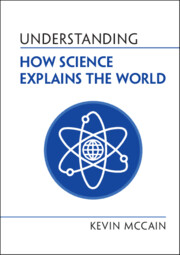Book contents
- Understanding How Science Explains the World
- Series page
- Understanding How Science Explains the World
- Copyright page
- Reviews
- Dedication
- Contents
- Foreword
- Preface
- Acknowledgments
- 1 Why Explanation Matters in Science
- 2 The General Nature of Explanation
- 3 Specific Kinds of Scientific Explanations
- 4 Explanation and Prediction
- 5 Evaluating Explanations
- 6 Explanatory Quality and Felt Understanding
- 7 False Theories, But Accurate Explanations?
- 8 From Explanation to Knowledge
- Concluding Remarks
- Summary of Common Misunderstandings
- References and Further Reading
- Figure Credits
- Index
5 - Evaluating Explanations
Published online by Cambridge University Press: 17 June 2022
- Understanding How Science Explains the World
- Series page
- Understanding How Science Explains the World
- Copyright page
- Reviews
- Dedication
- Contents
- Foreword
- Preface
- Acknowledgments
- 1 Why Explanation Matters in Science
- 2 The General Nature of Explanation
- 3 Specific Kinds of Scientific Explanations
- 4 Explanation and Prediction
- 5 Evaluating Explanations
- 6 Explanatory Quality and Felt Understanding
- 7 False Theories, But Accurate Explanations?
- 8 From Explanation to Knowledge
- Concluding Remarks
- Summary of Common Misunderstandings
- References and Further Reading
- Figure Credits
- Index
Summary
Even though explanation plays a central role in science, it is not enough to simply come up with explanations. Scientists (and everyone else) must also evaluate explanations. After all, it’s clear that not every explanation is a good one, as well as that some explanations are better than others. For example, evolutionary theory provides a much better explanation of the diversity of life than, say, the hypothesis that all organisms appeared at the same time in their present form. But what makes one explanation better than another? Relatedly, how can we tell which of a set of competing hypotheses provides the best explanation?
Keywords
Information
- Type
- Chapter
- Information
- Understanding How Science Explains the World , pp. 55 - 68Publisher: Cambridge University PressPrint publication year: 2022
